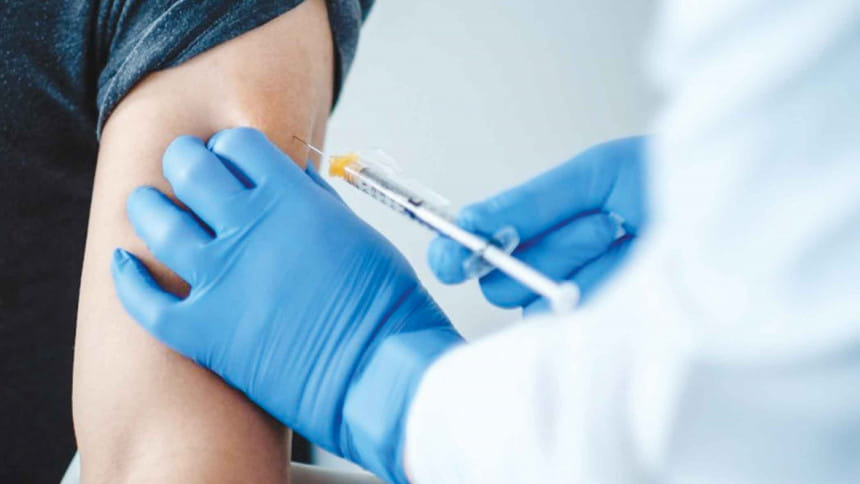How to know if the COVID-19 vaccine is working?

To understand how COVID-19 vaccines work, it helps to first look at how our bodies fight illness. When germs, such as the virus that causes COVID-19, invade our bodies, they attack and multiply. This invasion, called an infection, is what causes illness. Our immune system uses several tools to fight infection.
Different types of white blood cells fight infection in different ways. Macrophages are white blood cells that swallow up and digest germs and dead or dying cells. The macrophages leave behind parts of the invading germs called antigens. The body identifies antigens as dangerous and stimulates antibodies to attack them. B-lymphocytes are defensive white blood cells. They produce antibodies that attack the pieces of the virus left behind by the macrophages. T-lymphocytes are another type of defensive white blood cell. They attack cells in the body that has already been infected.
The first time a person is infected with the virus that causes COVID-19, it can take several days or weeks for their body to make and use all the germ-fighting tools needed to get over the infection. After the infection, the person's immune system remembers what it learned about how to protect the body against that disease. The body keeps a few T-lymphocytes, called memory cells that go into action quickly if the body encounters the same virus again. When the familiar antigens are detected, B-lymphocytes produce antibodies to attack them. Experts are still learning how long these memory cells protect a person against the virus that causes COVID-19.
COVID-19 vaccines help our bodies develop immunity to the virus that causes COVID-19 without us having to get the illness. Different types of vaccines work in different ways to offer protection, but with all types of vaccines, the body is left with a supply of 'memory' T-lymphocytes as well as B-lymphocytes that will remember how to fight that virus in the future. It typically takes a few weeks for the body to produce T-lymphocytes and B-lymphocytes after vaccination. Therefore, it is possible that a person could be infected with the virus that causes COVID-19 just before or just after vaccination and then gets sick because the vaccine did not have enough time to provide protection.
Sometimes after vaccination, the process of building immunity can cause symptoms, such as fever. These symptoms are normal and are a sign that the body is building immunity. Getting vaccinated is one of the many steps you can take to protect yourself and others from COVID-19. Protection is critically important because, for some people, it can cause severe illness or death.
The Oxford-AstraZeneca vaccine, which requires a two-dose regimen, contains an inactivated cold-causing adenovirus with genetic instructions for making coronavirus proteins to trigger immunity. Clinical-trial data suggest that side effects of the second shot are milder than those caused by the first. Vaccines work by triggering your immune system to produce a reaction; you can however have side effects after you receive the vaccine that feels like having a real infection. Things like having a fever, or getting a headache, often described as flu-like symptoms, are common after receiving many vaccines and this is the same for the approved COVID-19 vaccines. Having these symptoms means that your immune system is working as it should be. Usually, these symptoms last a much shorter time than a real infection would, most are gone within the first 1-2 days.
You do not even get the full benefit of the vaccine until about two weeks after that second dose, so you are still susceptible in that time frame. Vaccines work with your immune system so your body will be ready to fight the virus if you are exposed. Other steps, like masks and social distancing, help reduce your chance of being exposed to the virus or spreading it to others.
The article is compiled from various sources including The World Health Organisation, University of Oxford and Centres for Disease Control websites. The writer is a gerontologist and a public health specialist.
E-mail: [email protected]

 For all latest news, follow The Daily Star's Google News channel.
For all latest news, follow The Daily Star's Google News channel. 



Comments